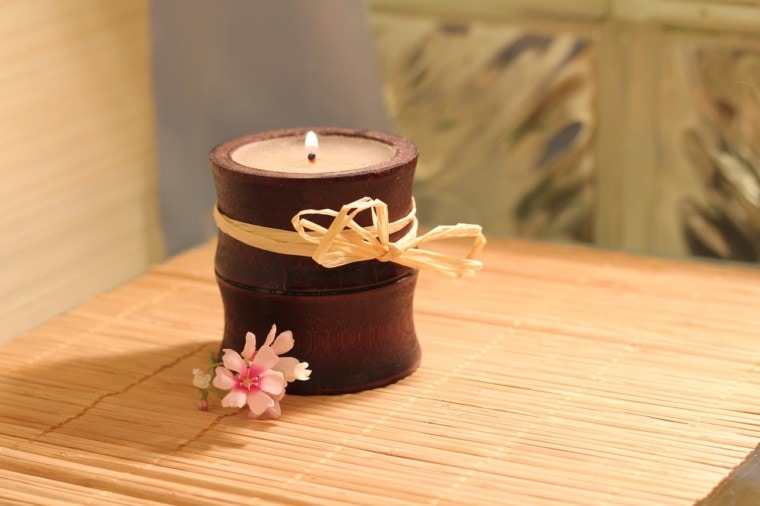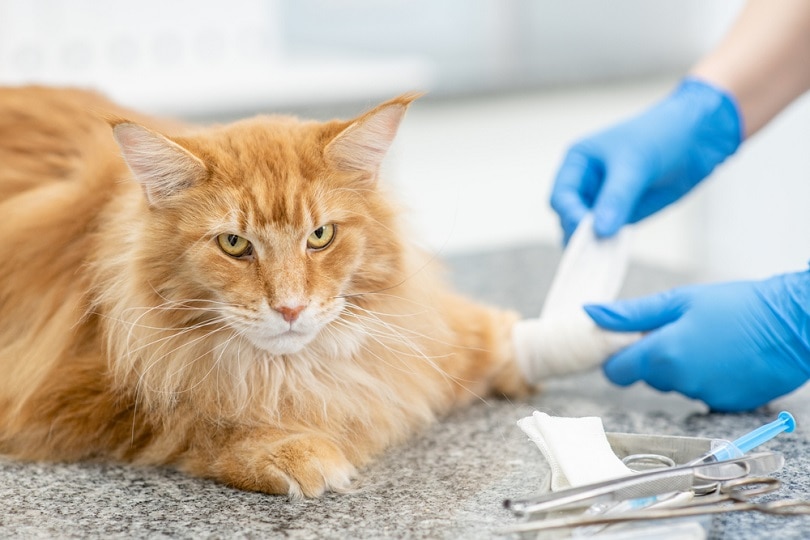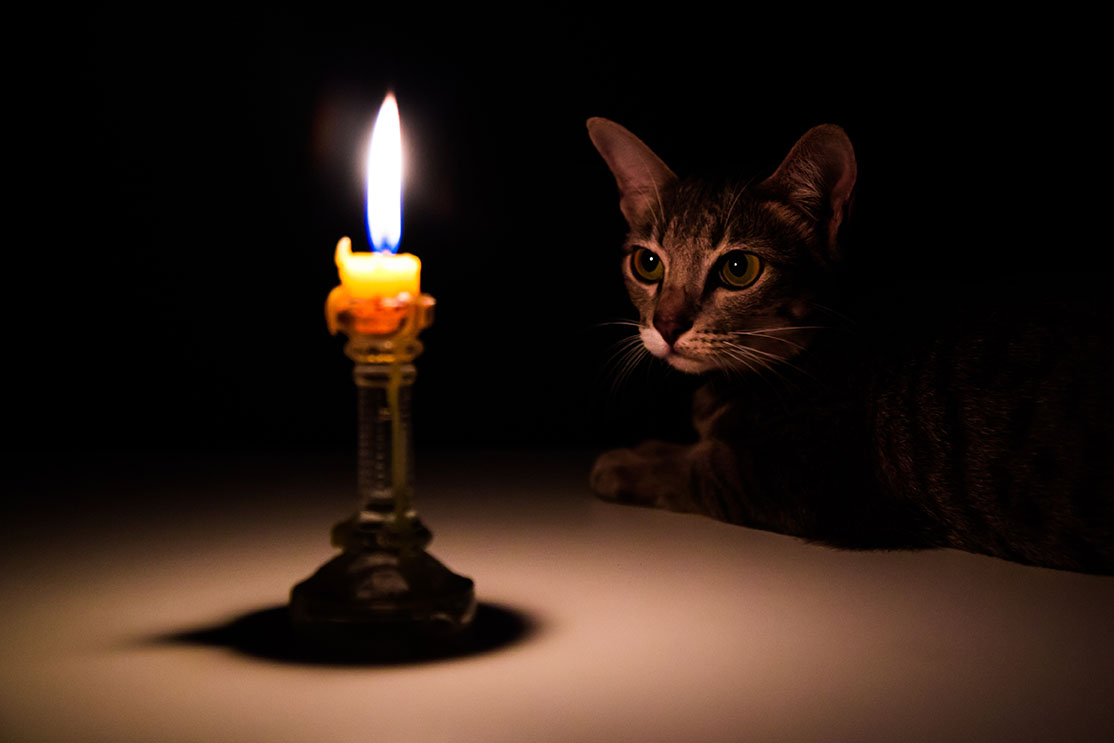
If you love filling your home with warm scents, you probably have a ton of candles. What home is complete without a few flickering flames, after all? But with all the attention on health these days, some of our readers are wondering if candles could be bad for their pets.
If you’re asking yourself whether candles have a negative impact on your feline, you might have cause for concern. Candles can be dangerous to cats—but it depends. Let’s discuss it further.
Cats Around Candles
For reasons that might seem obvious, candles can be pretty dangerous for cats. A flickering flame can spark serious interest for a feline. But there are also less obvious risks, like potential irritation from certain scents.
Burns
One of the main concerns regarding cats and candles mixing is the risks associated with fire. Your curious cat can inspect the candle or might even want to play with the flame on the wick. After all, it flits and flickers, catching the attention of your prey-driven feline.
Obviously, an open flame can pose quite a few concerns. If your cat contacts the flame, it can seriously scorch their paw pads and potentially catch their fur on fire.
One wrong move can singe off some hair and whiskers. Or worse, it could cause significant burns on your cat’s face and skin. They could injure eyes, soft noses, and sensitive paw pads.

Fires
If your cat accidentally knocks over a candle—what’s the worst-case scenario? Your whole house burns to the ground. The best-case scenario is a big mess to clean up. Depending on what the candle is around, it can easily engulf a section of your house in flames and spread very quickly.
Types of Candles

Are Wax Melters Good Alternatives?
Even if you have only wax melters, they can still take on significant heat. The temperatures can still blister or burn your cat’s paws if they make direct contact.
Also, wax is very messy and dries quickly. If your cat knocks over your wax warmer, or flicks it with their paw, you might have to clean up wax for days.
Your best bet here is to keep any wax warmer in an area your cat has no access to.
Other Scent Alternatives
You might wonder if an oil diffuser or incense would be a good scent alternative to candles—but is it?
Some essential oils can be highly toxic to cats, especially if they aren’t diluted.
A Cat’s Sense of Smell (It’s Strong)
It seems that cats are a little more sensitive to scents in the air than some other animals. After all, their sense of smell is 14 times better than a human’s. So, here are a few things that might bother them when candles are ablaze.
Chemical Fumes
Some cats can be very sensitive to certain ingredients in candles. While diffusers can be more dangerous because of the toxicity of many essential oils, other components of candles can have a negative impact.
Allergies
If you notice any sneezing, eye watering, or any other obvious sign of an allergy, you might need to discontinue the use of your candle.

Sensitivities
Some fragrances can make your cat sick or just uncomfortable. Each cat will be different, but some can be very sensitive to the smells or contents of the candle. In rare cases, some cats might dry heave or even vomit if the smell becomes too much.
Other Health Risks
Aside from burns or fires, candles can pose health risks if your cat decides to lick or eat the wax. In most commercial candles, there are tons of additives that are toxic to candles when ingested.
Tips for Burning Candles
Let’s face it, no one wants to give up their scented candles. They provide humans with feelings of tranquility and relaxation, things we could always use more of. It’s part of what makes home so homey. Here are a few things to keep in mind when burning candles.
Related Read: 11 Smells That Cats Love
Conclusion
There’s no reason cats and candles can’t peacefully coexist. After all, what else is going to mask the odors that your cat leaves you every day in their litter box? Just make sure you implement safety first so that no injuries or fires occur in the home.
Also, if your cat seems bothered by the scent, try selecting another type of candle to see if it soothes the symptoms.
See also:
Featured Image Credit: Pixabay








